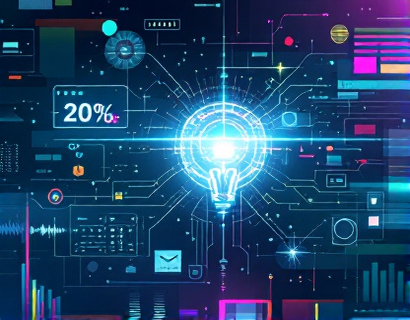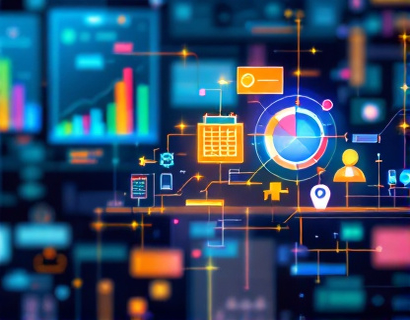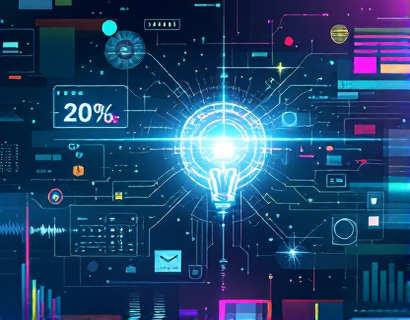Transforming Legal Assistance: The Power of AI Chat Interfaces
The landscape of legal assistance is undergoing a significant transformation with the advent of AI-driven chat interfaces. These innovative tools are redefining how users and professionals access legal insights and services, offering a blend of efficiency, accuracy, and convenience. By leveraging advanced artificial intelligence, these chat interfaces provide instant access to expert legal knowledge, empowering individuals and professionals to make informed decisions with ease and confidence.
Instant Access to Expert Legal Insights
One of the most compelling features of AI chat interfaces in legal assistance is their ability to deliver immediate and accurate legal insights. Users can ask specific questions about various legal topics, and the AI system responds with relevant information drawn from extensive legal databases and resources. This instant access to expert knowledge eliminates the need for lengthy research and reduces the time and cost associated with traditional legal consultations.
The AI system is trained on a vast array of legal texts, case laws, statutes, and regulations, ensuring that the information provided is up-to-date and reliable. Whether a user needs clarification on contract terms, understanding of intellectual property rights, or insights into employment law, the AI chat interface can provide detailed explanations and guidance. This level of accessibility democratizes legal knowledge, making it available to a broader audience beyond traditional legal professionals.
Empowering Users with Informed Decisions
The primary goal of AI chat interfaces in legal assistance is to empower users to make informed decisions. By providing clear and concise legal information, these tools help individuals navigate complex legal issues with confidence. For instance, a person considering entering into a business partnership can use the chat interface to review sample partnership agreements, understand key clauses, and assess potential risks. This proactive approach to legal education enables users to make better-informed choices, reducing the likelihood of legal disputes and misunderstandings.
Moreover, the AI chat interface can guide users through the legal process step-by-step, offering practical advice and recommendations. For example, in the context of divorce proceedings, the AI can outline the typical steps involved, explain the legal rights of each party, and suggest resources for mediation and counseling. This comprehensive support system ensures that users are well-prepared and informed throughout the legal process.
Secure and User-Friendly Platform
Security and user experience are paramount in the design and implementation of AI chat interfaces for legal assistance. These platforms are built with robust security measures to protect user data and ensure privacy. Encryption protocols, secure authentication methods, and regular security audits are standard practices to safeguard sensitive information. Users can trust that their queries and personal data are handled with the utmost care and confidentiality.
In addition to security, the user interface is designed to be intuitive and user-friendly. The chat interface is accessible via web and mobile platforms, allowing users to seek legal insights and assistance from anywhere at any time. The conversation flow is natural and conversational, making it easy for users to interact with the AI system as they would with a human legal advisor. This seamless user experience enhances user satisfaction and encourages repeated use of the platform.
Support for Legal Professionals
AI chat interfaces are not only beneficial for end-users but also provide valuable tools for legal professionals. Attorneys and legal firms can integrate these chat systems into their practice to enhance client communication and case management. For instance, legal professionals can use the AI to quickly research precedents, draft legal documents, and stay updated on changes in the law. This efficiency gains can significantly reduce the workload and allow professionals to focus on more complex and high-value tasks.
Moreover, AI chat interfaces can serve as a preliminary screening tool, helping legal professionals identify and prioritize cases based on specific legal issues. By analyzing user queries and providing initial assessments, the AI can assist attorneys in deciding which cases to take on and how to allocate resources effectively. This data-driven approach to case management can lead to better client outcomes and improved firm productivity.
Enhancing Legal Education and Training
The integration of AI chat interfaces in legal education and training programs is another transformative application. Law students and continuing education participants can use these tools to supplement their learning and gain practical insights into various legal areas. The AI can simulate real-world scenarios, provide case studies, and offer interactive quizzes to reinforce understanding. This interactive learning experience enhances knowledge retention and prepares students for the challenges of the legal profession.
Additionally, AI chat interfaces can offer personalized learning paths based on the user's background and learning objectives. For example, a law student specializing in corporate law can receive tailored resources and practice questions to strengthen their expertise in that area. This personalized approach to legal education ensures that learners receive the most relevant and effective training possible.
Addressing Ethical and Regulatory Considerations
While AI chat interfaces offer numerous benefits, it is crucial to address the ethical and regulatory considerations associated with their use in legal assistance. Ensuring compliance with legal and ethical standards is non-negotiable. This includes adhering to data protection regulations, maintaining transparency about the AI's capabilities and limitations, and providing clear disclaimers about the nature of the legal advice provided.
Moreover, the AI system should be designed to avoid biases and ensure fairness in the information provided. Regular audits and updates to the AI algorithms can help mitigate potential biases and maintain the integrity of the legal insights offered. Collaboration with legal experts and ethicists is essential to develop guidelines and best practices for the responsible use of AI in legal assistance.
Future Prospects and Innovations
The future of AI chat interfaces in legal assistance is promising, with ongoing advancements in natural language processing, machine learning, and data analytics. As these technologies continue to evolve, the accuracy and sophistication of AI legal chat interfaces will improve, offering even more comprehensive and nuanced legal insights. The integration of AI with other legal technologies, such as document automation and contract analysis tools, can create a holistic legal support ecosystem that streamlines the entire legal process.
Furthermore, the adoption of AI chat interfaces is likely to expand beyond individual users and legal professionals to include organizations and businesses seeking legal guidance. Companies can leverage these tools to navigate complex regulatory environments, manage compliance risks, and optimize their legal strategies. The potential for AI to transform the legal industry is vast, paving the way for a more accessible, efficient, and equitable legal system.
In conclusion, AI chat interfaces are revolutionizing the way legal assistance is delivered, providing users and professionals with instant access to expert legal insights and services. By combining advanced technology with a user-centric approach, these platforms are setting a new standard for legal support, ensuring that individuals and organizations can navigate the legal landscape with confidence and ease.










































